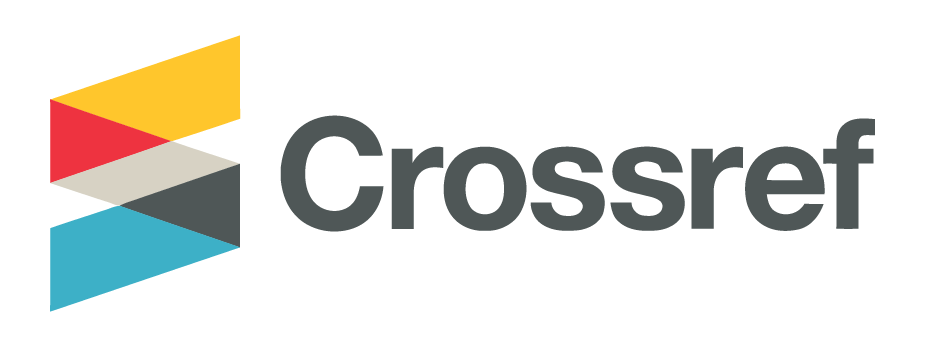The effect of training based on psychological learning styles on the development of job skills and individual productivity
DOI:
https://doi.org/10.63053/ijrel.40Keywords:
Adapted Education, Psychological Styles, Experiential, Job Skills, Individual ProductivityAbstract
This research was conducted to investigate the effect of education on psychological styles for the development of job skills and individual productivity. The research method was quasi-experimental with a pre-test and post-test design with a control group. The statistical population included 200 employees of public and private organizations, who were randomly divided into two experimental (100 people) and control (100 people) groups. The experimental group received training and the control group benefited from traditional methods. Data collection tools included standard questionnaires of design styles (Kolb), job skills and individual productivity, semi-structured interviews, and behaviour observation. The results of statistical analysis using multivariate Vance analysis (MANOVA) showed that the experimental group has a significant improvement in all job skills (decision-making, problem-solving, time management and communication) and productivity (reducing errors, increasing motivation and performance).
(P<0.001). Also, multiple regression analysis showed that experimental and practical data styles have an effect on executive skills, and conceptual styles have an effect on analysis and self-awareness. The qualitative data obtained from the interviews also examined the increase in self-efficacy, satisfaction with experience, and job motivation in the experimental group. This research showed that training adapted to styles can be a tool to improve job skills and individual productivity and offers suggestions for designing training programs with individual differences.
References
• Brown, P. C. (2020). Make it stick: The science of successful learning. Harvard University Press.
• Gardner, H. (2016). Frames of mind: The theory of multiple intelligences. Basic Books.
• Illeris, K. (2018). The fundamentals of workplace learning: Understanding how people learn in working life. Routledge.
• Kolb, D. A. (2015). Experiential learning: Experience as the source of learning and development. FT Press.
• Knowles, M. S. (2020). The adult learner: The definitive classic in adult education and human resource development. Routledge.
• Merriam, S. B., & Bierema, L. L. (2020). Adult learning: Linking theory and practice. Jossey-Bass.
• Mezirow, J. (2021). Transformative dimensions of adult learning. Wiley.
• Schunk, D. H. (2021). Learning theories: An educational perspective. Pearson.
• Taylor, E. W. (2019). Teaching for change: Fostering transformative learning in the classroom. Jossey-Bass.
• Felder, R. M., & Brent, R. (2016). Teaching and learning STEM: A practical guide. Jossey-Bass.
• Brown, P., & Tannock, S. (2020). Skills and workforce development: A critical approach. Routledge.
• Billett, S. (2019). Learning through work: Exploring instances of relational interdependencies. Springer.
• Eraut, M. (2015). Developing professional knowledge and competence. Routledge.
• Allen, T. D., Poteet, M. L., & Burroughs, S. M. (2017). The mentor's perspective: A qualitative inquiry and future research agenda. Journal of Vocational Behavior, 106, 10-20.
• Zimmerman, B. J. (2020). Self-regulated learning and academic achievement: Theoretical perspectives (3rd ed.). Routledge.
• Sonnentag, S., & Frese, M. (2018). Performance concepts and performance theory. Psychological Management of Individual Performance, 1-25.
• Vygotsky, L. S. (1978). Mind in society: The development of higher psychological processes. Harvard University Press.
• Lave, J., & Wenger, E. (1991). Situated learning: Legitimate peripheral participation. Cambridge University Press.
• Xin Zhang. (2023). The Influence of Teaching Style on Students' Learning. Lecture Notes in Education Psychology and Public Media. DOI: 10.54254/2753-7048/22/20230320
• Parveez Ahmad Lone. (2020). Impact of Learning Style on Academic Achievement of Urban Secondary School Students. Vol. 40, pp. 2415-2429.
• G. Whitman. (2023). Learning Styles: Lack of Research-Based Evidence. The Clearing House: A Journal of Educational Strategies, Issues and Ideas. Vol. 96, pp. 111-115. DOI: 10.1080/00098655.2023.2203891
• Marleny Leasa, A. D. Corebima, & J. R. Batlolona. (2020). The Effect of Learning Styles on the Critical Thinking Skills in Natural Science Learning of Elementary School Students. Vol. 19, pp. 2086-2097. DOI: 10.17051/ilkonline.2020.763449
• Maria Acnabel Castro Delgado, Miguel Ángel Castro Delgado, Jenifer Patricia Farías Loor, Elizabeth Josefa Hidalgo Del Valle, Andrés Alejandro Ortega Castro. (2023). Learning Styles Applied to Teaching the English Language. Macrolinguistics and Microlinguistics. DOI: 10.21744/mami.v3n1/2.30
• Halim, Adinda Wirda, & Y. Yusrizal. (2022). Analysis of Learning Styles in Terms of Knowledge, Skills and Attitudes. Momentum: Physics Education Journal. DOI: 10.21067/mpej.v6i2.6581
• Zongmiao Liu. (2023). Learning Style Will Affect Learning Effectiveness. Lecture Notes in Education Psychology and Public Media. DOI: 10.54254/2753-7048/8/20230153
• Yiming Cai & Li-Jung Yu. (2023). Promoting Creativity in Vocational Education: The Role of Self-Efficacy, Cognitive Style, and Playful Motivation in Students' Innovation Skills Development. Educational Administration: Theory and Practice. DOI: 10.52152/kuey.v30i1.974
• Putri, Yusrizal, Evendi, A. Halim, & Elisa. (2021). The Impact of Learning and Thinking Styles on the Learning Outcomes of High School Students. Proceedings of the 2nd International Conference on Science, Technology, and Modern Society. DOI: 10.2991/assehr.k.210909.064
• Bediako Augustine, John Douglas Sawiri, Prince Kusi, & A. Iddrisu. (2022). Relationship and Impact of Learning Styles on Students’ Academic Achievement. Vol. 3, pp. 180-184.
• Khadijah Maming, Ali Rahman, & Radiah Azizah Idris. (2023). The Influence of Motivation and Learning Style on Learning Pattern Toward Students’ Speaking Improvement. ELS Journal on Interdisciplinary Studies in Humanities. DOI: 10.34050/elsjish.v6i1.24949
• Dr. Nguyen Thi Van Anh, Hoang Tuyet Anh, Hoang Thanh Tam, Do Phi Phi, Doan Minh Quang, Nguyen Ha, Hai Duong, & Nguyen Quang Minh. (2023). Parenting Styles and High School Students’ Interest in Learning. International Journal of Education and Social Science Research. DOI: 10.37500/ijessr.2023.6610
• Jorge Muñoz-Mederos, Elizabeth Acosta-Gonzaga, E. Ruiz-Ledesma, & Aldo Ramirez-Arellano. (2021). Do Learning Styles Enhance the Academic Performance of University Students? A Case Study. DOI: 10.14569/ijacsa.2021.0120686
• Shaidullina, N. A. Orekhovskaya, E. G. Panov, M. Svintsova, O. Petyukova, Nataliya S. Zhuykova, & E. Grigoryeva. (2023). Learning Styles in Science Education at University Level: A Systematic Review. Eurasia Journal of Mathematics, Science and Technology Education. DOI: 10.29333/ejmste/13304
Downloads
Published
How to Cite
Issue
Section
License
Copyright (c) 2025 Authors

This work is licensed under a Creative Commons Attribution 4.0 International License.













